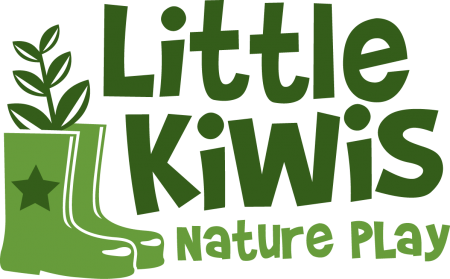
WELCOME TO OUR ONLINE CONFERENCE!
Tena koutou katoa!
Thank you so much for joining us for the Nature Play Conference Online for 2022. We are thrilled you are able to join us in this important mahi.
First thing each morning of the Conference you will recieve an email from celia@littlekiwisnatureplay.com Please make sure you have this email saved so the emails don’t end up in your junk folder.
On your daily email it will introduce you to the speakers and workshop presenters that day, share the details for the evening session and provide you the link for this page and also the link for the evening live session for that day. Each day the new workshops will appear below and replace the blurb that is currently there. The live sessions will also be recorded and added as soon as possible.
All information will also be in here so once you have this link you can just come back here to access live links, watch the workshops and read through any resources provided.
Please join us live for the opening session at 8pm Monday 28th March where we will officially open the Conference with a mihi whakatau and Keynote from Joseph Hullen, Kaitohutohu Rēhita Whakapapa, Ngai Tahu.
Celia, Founder of Little Kiwis Nature Play
Conference Resources
As part of your registration you recieved access to some resources. Please find them below. You will also find handouts:
CASE STUDY: Bush Kindy Virtual Site Tour
Hella Coenen from New Forest School has kindly recorded some beautiful stories to share with us. Hella is a wonderful story teller using natural resources and will be offering a story telling resource for nature educators in the future.
Monday 28th March
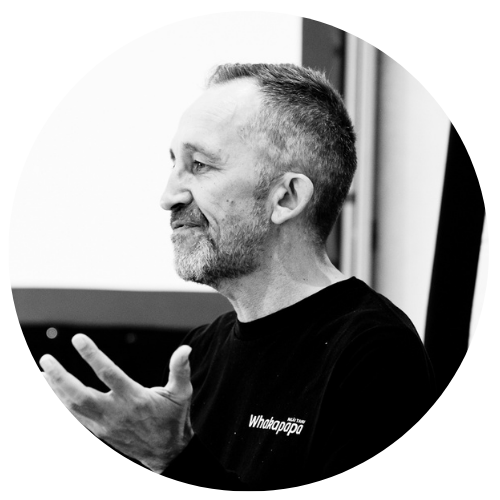
Joseph Hullen: Kaitohutohu Rēhita Whakapapa, Ngai Tahu
LIVE OPENING KEYNOTE: The meaning of Taiao (Nature)
Joseph will korero from a te ao Māori perspective, the importance of Taiao and you will find yourself reflecting on how you engage in your local spaces.
Please find some links provided by Joseph following his opening keynote:
https://www.tuhaitarapark.org.
https://www.facebook.com/
https://www.facebook.com/
https://www.facebook.com/
https://www.facebook.com/
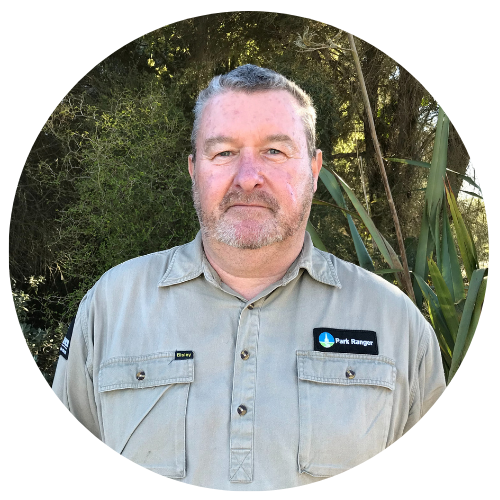
Warren Hunt: Forest Ranger & Lifelong Learner
KEYNOTE: Connect with your inner child to connect kids with nature.
Sometimes as adults and as educators with lesson plans and targets to meet, it’s easy to forget we were kids once too. By changing your mind-set and keeping your inner child alive you can create learning experiences that last.
Warren will lead you through his playful approach to education, weaving facts with fun and telling stories not lectures, and not taking himself – or others – too seriously. Explore the world with all of its possibilities and experience the simple joy and child-like wonder of learning again.
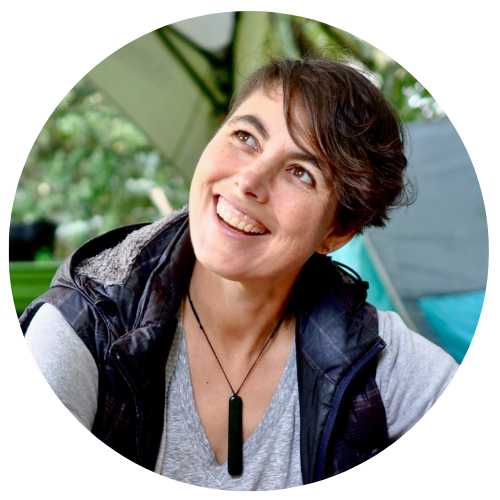
Ann Langis: Director, Ann Langis Play
Sticks and Stones… Understanding and Managing Play Fighting in Nature-Based Settings
When you allow children to follow their own interests through nature play, you will see fairies mixing potions, Mums and Dads building shelters for the baby, and construction workers relocating sand at the beach. You will also see play fighting, and lots of it. Many of us (mostly female) teachers feel quite challenged by children (mostly boys) engaging in this type of play, and we may find ourselves saying things like “We don’t play like that here because we don’t want any of you to be hurt… because we don’t want you even to pretend to hurt each other… because guns hurt people… because it’s not nice… because I said so.” Why do we say so?
Join us as we take a closer look at the theory and research around play fighting and consider practical strategies for managing this type of play.

Kirsten Simmons: CEO of Nature2classroom/ Director of Talking Tree Hill
Creativity and Nature education a must for your curriculum!
In this workshop we will explore how to successfully integrate creative nature education into your ECE centre or Primary School. Giving you tips, tricks and inspiration through proven NZ based research and practices. This workshop will empower you to walk away feeling grounded in the knowledge that you can develop your curriculum to be creative and collaborative and help children foster a deep connection to place and whenua. Helping children to develop authentic voice, thinking and behaviour awarenesses and teaching healthy minds and bodies. Yes! All by integrating more creative nature education into your curriculum.
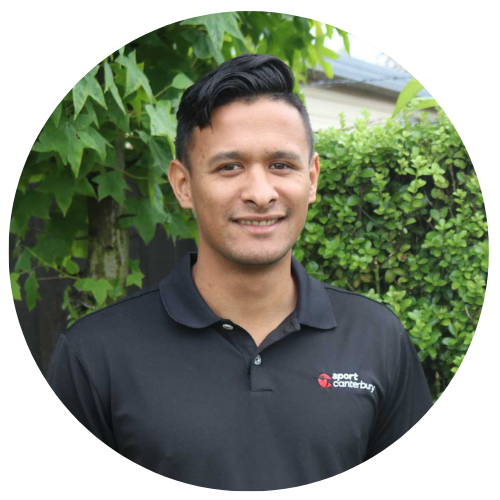
Lawrence Tau: Systems Innovator, Healthy Families Ōtautahi Christchurch
Story telling through games
This workshop explores how we can bring māori narratives to life through games that are unique to māori, which can then be on shared with both the children and adults in your communities.
Tuesday 29th March

Julie Frew: Occupational Therapist, Kaiwhakaora Ngangahau
LIVE KEYNOTE: All Behaviour is Communication. What’s beneath behaviour and how do we effectively support children?
Understanding there is always a story behind behaviour allows us to meet challenging moments with curiosity and compassion – for ourselves, the caregivers we encounter, and importantly the children in our care.
A deeper understanding of how our nervous systems adapt to keep us safe, in the best way they know how, allows us to see how this influences behaviour and invites us to offer support that recognises the nuance and complexity of why a child does what they do.
What we see on the surface can prompt us to consider how someone processes information from inside their bodies, the world around them, and within relationships. Experiences shape and are shaped by these neurobiological processes, as our ways of relating and being in the world unfold within the context of relationship.

Tracy Irving, Environmental Educator Christchurch City Council
What’s Bugging You?
Children are naturally fascinated by the biodiversity around them. So, apart from this fascination and a willingness to be amazed with what’s hiding in plain sight, what else will help you to support investigations into the world of mini-beasts? This workshop will look at basic information around our local critters including heaps of habitats, some identification tools, helpful equipment, where to find our buggy friends, their life cycles, and the important roles bugs play to keep Nature in balance.

Giarne Harrison, Raranga by Giarne
Weave flowers with harakeke (raranga putiputi)
Create 2 different styles of putiputi (flowers) from harakeke (flax). Learn how to make a “wind up rose” and an arum lily. This workshop focused on learning some tikanga (cultural practices), te reo (language) and weaving skills. I run classes that are calm, fun and supportive.

Leo Smith: Director, Nature School NZ Trust
Playing with ‘dangerous’ tools
Us adults all know how rewarding it can be to play with fire and knives! Some believe that kids shouldn’t use these ‘dangerous’ tools, as they might hurt themselves?! Leo’s workshop will introduce whittling, knife use, teaching knife use and using fire with children. We will also look at risk management for fire and knives, and safe operating procedures (SOP).
You will come out of this practical workshop having had a good play with some ‘dangerous’ tools, rigorous discussion and thought provocation and with your own SOP.

Sarah Goldberg: Mindful Nature Connection Guide
Mindful Nature Connection
Drawing from practices of shinrin yoku forest bathing and mindfulness, this workshop will invite us into the present moment through our sensory connection with nature. Invitations for this session are designed to explore our own experience of reciprocity with nature while also bringing us together in community as we share with each other. This is a slow, gentle practice of being present on purpose, embodiment, sensory awareness and nature connection. During this workshop we will also practice mindful communication by listening and sharing with presence and an open heart.
From this workshop, you may gain inspiration and ideas on how to practice mindful nature connection in your own life for wellbeing, and also how to weave it into activities for the work you do with children and youth. These practices can increase our sense of wonder and curiosity about nature, ourselves and our community. Participants may also gain insight and a deeper understanding of how to care for the Earth in a kinder, more heartfelt way.
*Research suggests this practice may reduce stress, anxiety, and depression while increasing attention/focus, levels of empathy, stabilised moods, ability to remain calm/resilience during challenging times, and also increase our immune response.

Dani Lebo: The Eco School
CASE STUDY: Wanganui Intermediate Forest School
In this korero, Dani will share how Wanganui Intermediate has started a forest school programme covering the challenges and the successes and a bit of the how to!
Wednesday 30th March
LIVE PANEL DISCSSION: Addressing the Barriers to Nature Based Education

Kirsten Simmons
Talking Tree Hill

Dani Lebo
Kaiako and The ECO School

Celia Hogan
Little Kiwis Nature Play
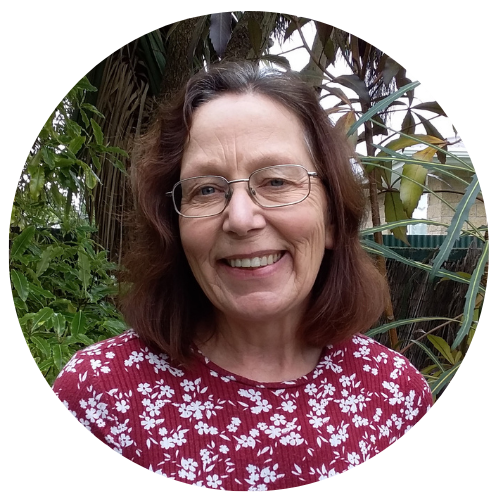
Tanya Jenkins – Avon-Heathcote Estuary Ihutai Trust Manager
A Litter Free Christchurch (and beyond) Through Community Participation
This presentation will cover the effects of litter on our natural environment, what kind of litter we find entering our waterways and how it enters our waterways.
While the presentation is about how we can get together through actions to make Christchurch a litter free city, we will step back and consider how can centres, schools and other communities apply this to their own setting.
The audience will become inspired and stimulated to investigate what we can do as individuals and groups to make this vision a reality.

Julie Frew: Occupational Therapist, Kaiwhakaora Ngangahau
All Behaviour is Communication – A Deeper Dive
This workshop takes a dive into the neurobiology of sensory processing and the interface this has with our social-emotional development. We will discuss how developmental trauma and neurodivergence (or a combination) might impact on behaviour, engagement and participation.
Participants will learn:
• The importance of self-compassion when it comes to supporting complex behaviour, and how to practise this in-the-moment
• To practise discerning the ‘why’ behind behaviour and what a child might be communicating
• How to pro-actively assess and balance factors that contribute to optimal arousal for learning/development/play
• More about sensory processing in the outdoor classroom, and how to move from one-size-fits-all to adapting for individual needs.

Colin Meurk: Landscape Ecologist – Fellow at Canterbury & Lincoln Universities & Manaaki Whenua Research Associate
The many Dimensions of Nature revealed through a Walk in the Park – Transcending Age and Culture
Unstructured youthful curiosity can form a parallel universe to disciplined science, but they can both learn from each other at points of convergent exploration. Colin will tell his own stories of plants, microbes, creatures, patterns and zonation at local to global scale, growth forms, adaptation, evolution, Matauranga Maori, cultural connection, sense of place, life cycle, food webs, succession and deep time. So, where will the children take us as they explore their inclinations and build their story? Who knows what they will discover? Out of this interaction and symbiosis can come decolonised ecological literacy. We have to try – hard, so the future citizens of mother earth know where, why, and how we need to travel.

Celia Hogan, Nature Education Specialist + Founder and Lead Educator at Little Kiwis Nature Play
Setting up and Teaching in the Outdoor Classroom
This is a practical workshop ideal for nature educators who are looking at how they can bring nature into their own outdoor environments and use it as a teaching space. We will take a walk through our Bush Kindy environment where we will consider how children play having discussions on schema, loose parts play, nature play and risky play. These discussions will help us identify what to think about when developing your outdoor space. We will finish up thinking about teaching in that space and with some tools for your kete.
Together we will experience some nature based activities within the space to build up confidence on how to use the outside space with your teaching. There will be time to share ideas, ask questions to extend your learning and expand your toolkit of ideas.
Thursday 31st March

Celia Hogan, Nature Education Specialist + Founder and Lead Educator at Little Kiwis Nature Play
LIVE CLOSING KEYNOTE: The Risk of Riskless Play
Risky play is not just about the physical development it is about building self-confidence, problem solving and emotional resilience. These skills are transferable to other areas of our lives, they help us to cope when faced with challenging situations and are essential for a child’s healthy overall development.
So many adults are hesitant when children take risks, they put roadblocks in the way or project their own fears onto the children they work with. Yet children have been taking risks since the day they were born and taught themselves many things. If we truly see children as capable and competent then we need to let them play in the ways, they developmentally need to.

Ann Langis: Director, Ann Langis Play
Nature Play for Babies and Toddlers (up to 2 yrs old)
Babies and toddlers in nature? Yes indeed! Your littlest tamariki need nature play just as much as our 3-4 year olds, but perhaps for different reasons. In this session we’ll consider the developmental needs of infants and toddlers, and the risks and benefits of nature play for them. For this session be prepared to get outdoors and view the natural environment from a baby’s eye view… but we’ll also share ideas for bringing nature play indoors when it’s not suitable or practical to be outside.

Dani Lebo: The Eco School
Nature Educator Upskill – Knots, Shelters, & Story Telling
This workshop will help you gain confidence in three key areas that are important for any nature play program – storytelling, knot, and shelters. Great for experienced nature educators who feel the need to add a few tricks to their kete, or for new educators at the beginning of their journey.
We will explore using storytelling as part of a daily routine, and some tips and tricks to make educators feel confident as an oral story teller. We will look at how rituals and routines in a morning and afternoon circle time can enhance your program. You will see several methods of storytelling to use with ages preschool-secondary and have the chance to tell a story of your own.
We will also dive into practical skills of shelter-building and knot-tying. We will look at why these foundational skills are important for nature educators, and how they might fit into your program. And of course, I do love a good game or two, so be prepared to play around a bit too.

Julie Wylie: Julie Wylie Musical Play
Singing and Saying, Moving and Playing, Exploring Each Moment Through Musical Play
Musical play and exploring nature go hand in hand. Children are able to tune into the sights and sounds of nature, with a sense of joy and wonder. Connection to the natural environment through sensory musical play, fosters children’s creativity and wellbeing, enabling them to experience the healing power of nature.


Beth Russell – whaea Beth, Kaiako at He Manu Hou
Nicki Crabbe – whaea Nicki, Kaiako at He Manu Hou
CASE STUDY: Kuapapa Māori Nature Programme
Beginning with a kōrero about Waewae kai kapua and the haerenga the center has been on, Beth and Nicki will share the highs and lows, how they started and discuss what worked well and what didn’t. It’s continual process of improvement, including reviewing how much the tamariki are benefiting from the akorangi-tu-a-nuku (outside programme). They will also share how they incorporate māori tikianga/their pepeha/reo/ngā atua into their programme, and highlight how important it is to have support from the whole team, as well as a clear vision to the benefits of running an outside programme – and how the tamariki are becoming kaitiaki o te ao me ngā moana.
